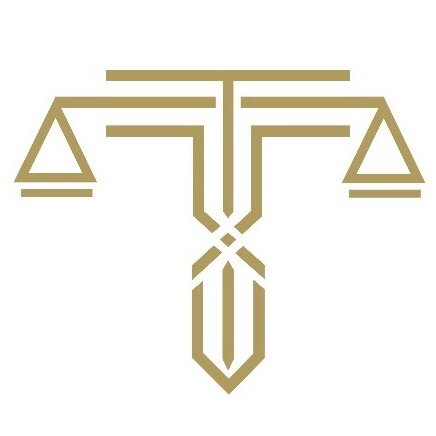Best Business Lawyers in Dammam
Share your needs with us, get contacted by law firms.
Free. Takes 2 min.
List of the best lawyers in Dammam, Saudi Arabia
Saudi Arabia Business Legal Articles
Browse our 3 legal articles about Business in Saudi Arabia written by expert lawyers.
- Types of Business Licenses in Saudi Arabia and How to Obtain Them
- Saudi Arabia's dynamic economy, fueled by initiatives like Vision 2030, presents significant opportunities for both local and international businesses. However, successfully entering or operating within the Kingdom hinges on navigating its specific regulatory requirements, starting with securing the correct business licenses. For legal professionals advising clients on KSA market entry... Read more →
- Guide to VAT Registration for Businesses in Saudi Arabia
- For businesses operating within or expanding into the Kingdom of Saudi Arabia (KSA), navigating the requirements for Value Added Tax (VAT) is a critical aspect of financial and legal compliance. As legal advisors, understanding the intricacies of the VAT registration process in Saudi Arabia is essential for guiding clients effectively... Read more →
- How to Start a Business in Saudi Arabia
- Whether you are a local entrepreneur or an international investor, starting a business in Saudi Arabia can be an exciting and rewarding venture. However, knowing the legal requirements is crucial for a smooth, successful launch. In this guide, we will walk you through the key steps and legal issues that... Read more →
About Business Law in Dammam, Saudi Arabia
Dammam, as one of the key economic hubs within Saudi Arabia, operates under the umbrella of the Kingdom's legal system. This includes business laws, which are heavily influenced by Islamic Sharia law. Dammam's business landscape includes small to larger enterprises operating in sectors such as oil, real estate, and trade. Recent changes to the Kingdom’s Foreign Investment Law make it easier for businesses to enter and operate in the market. Nonetheless, understanding local law bandwidth is crucial for successful business operation.
Why You May Need a Lawyer
Legal assistance becomes particularly useful during business set-ups, expansion, navigating contractual agreements, dealing with labor laws, tax considerations, and handling disputes. Lawyers can also provide preventive advice to ensure risk minimization and adherence to local rules. Complex regulations and the language barrier might also necessitate assistance from a lawyer who is well-versed in the vernacular and business law.
Local Laws Overview
Saudi business laws are complex and influenced by Islamic principles. Key aspects include company law, governed by the Ministry of Commerce, and labor law, governed by the Ministry of Human Resources and Social Development. The recent introduction of Value Added Tax on goods and services and various zonal laws (like the Royal Commission for Jubail and Yanbu laws) can also impact on your business. Moreover, Saudi Arabia's Anti-Bribery Law and Anti-Fraud Law help maintain corporate governance and ensure business ethics are adhered to.
Frequently Asked Questions
Q1: In what industries can I conduct business in Dammam?
Sectors open for business in Dammam comprise oil & gas, petrochemicals, logistics, real estate, retail, and construction, among others.
Q2: Can expatriates own businesses in Dammam, Saudi Arabia?
Following recent changes, foreign investors can now wholly own businesses in Saudi Arabia with some restrictions in specific sectors.
Q3: Are there any free zones in Dammam?
Yes, The King Fahd Industrial Port and Dammam Commercial Port are recognized as free zones, and businesses within them enjoy various benefits.
Q4: What taxes apply to businesses in Saudi Arabia?
A Value Added Tax of 15% is applied on goods and services. Moreover, foreign companies pay Corporate Tax, and there is a Withholding Tax on certain payments to foreign parties.
Q5: Can I carry out business activities anywhere in Saudi Arabia if I am registered in Dammam?
Yes, you can conduct business across the Kingdom, with your registration in Dammam. However, there may be certain location-specific regulations that apply.
Additional Resources
Consider consulting resources such as the Saudi Arabian General Investment Authority (SAGIA), Chamber of Commerce in Dammam, and the Ministry of Commerce and Investment. Also, legal firms with local and international presence offer comprehensive consultation services.
Next Steps
If you require legal assistance, start with identifying the exact nature of your legal need, then search for a qualified business lawyer or legal firm specializing in Saudi Arabia's business laws. Be prepared to provide comprehensive information about your situation so your legal adviser can give informed guidance.
Lawzana helps you find the best lawyers and law firms in Dammam through a curated and pre-screened list of qualified legal professionals. Our platform offers rankings and detailed profiles of attorneys and law firms, allowing you to compare based on practice areas, including Business, experience, and client feedback.
Each profile includes a description of the firm's areas of practice, client reviews, team members and partners, year of establishment, spoken languages, office locations, contact information, social media presence, and any published articles or resources. Most firms on our platform speak English and are experienced in both local and international legal matters.
Get a quote from top-rated law firms in Dammam, Saudi Arabia — quickly, securely, and without unnecessary hassle.
Disclaimer:
The information provided on this page is for general informational purposes only and does not constitute legal advice. While we strive to ensure the accuracy and relevance of the content, legal information may change over time, and interpretations of the law can vary. You should always consult with a qualified legal professional for advice specific to your situation.
We disclaim all liability for actions taken or not taken based on the content of this page. If you believe any information is incorrect or outdated, please contact us, and we will review and update it where appropriate.
Browse business law firms by service in Dammam, Saudi Arabia
Dammam, Saudi Arabia Attorneys in related practice areas.

















